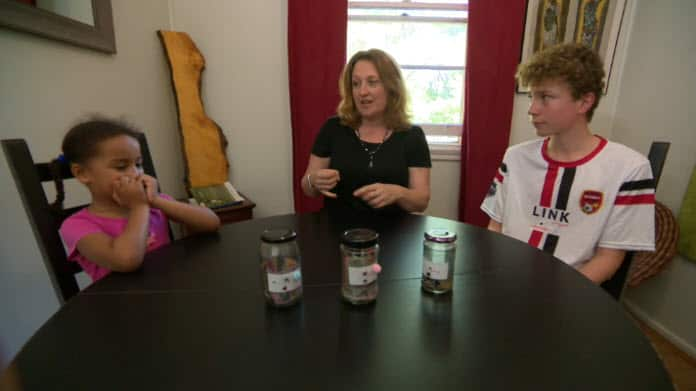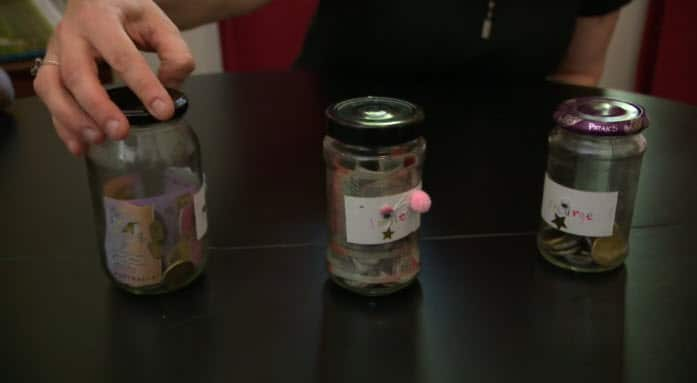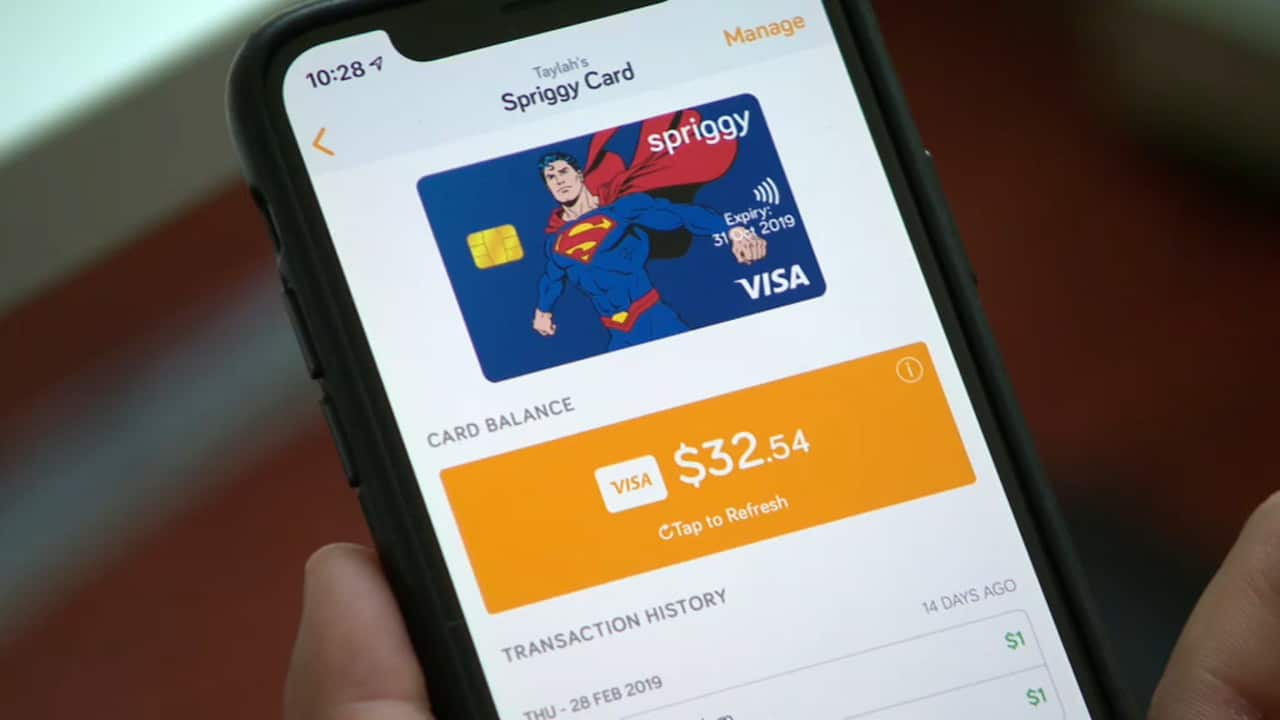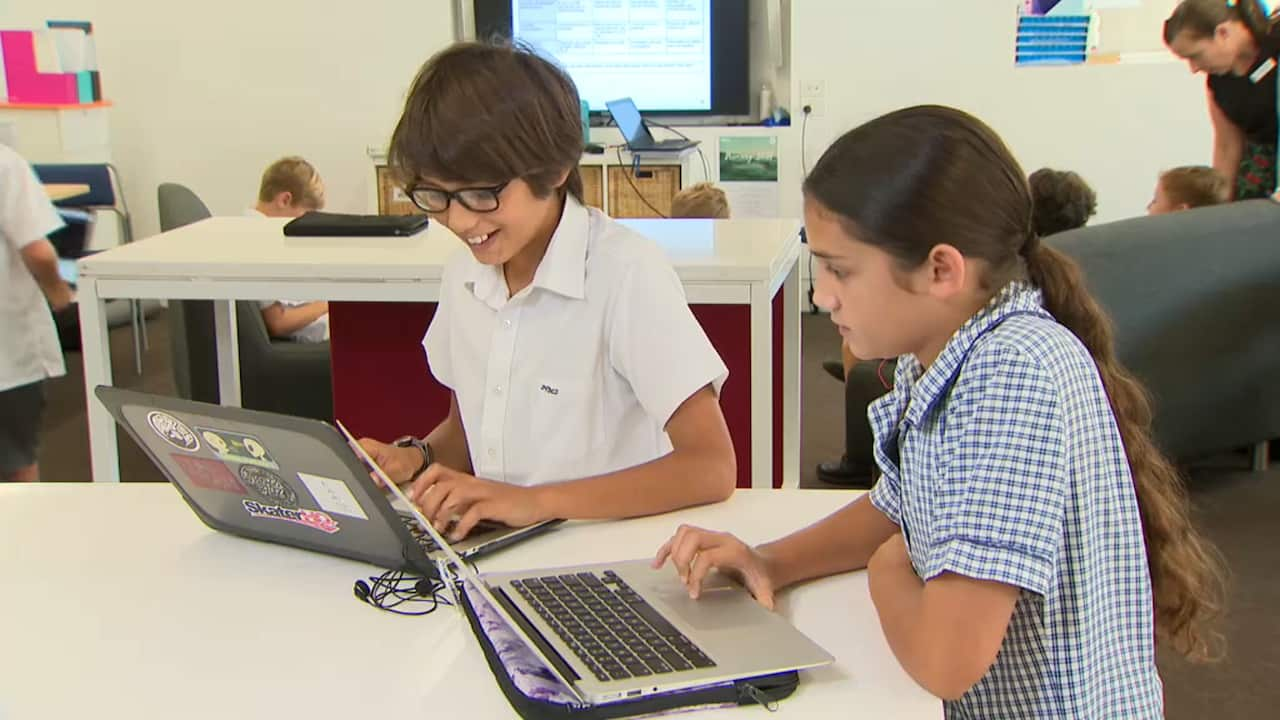A recent report by the Financial Planning Association revealed 66 per cent of Australian parents believe digital money is making it harder for children to grasp the value of real money.
Sydney mother Helen Lewis agrees.
She tells SBS News teaching her kids the value of a dollar is paramount as the jobs of the future change.
"I think it's more likely our children will work in a situation where they will maybe have more than one job or work in contract work. I believe the onus will be on them to manage their money more carefully because that impacts on things like getting a mortgage, what happens with their superannuation."

Global Money Week (25-31 March) is an annual financial awareness campaign built to inspire children and young people to learn about money matters, livelihoods and entrepreneurship - in partnership with the OECD.
Ms Lewis is teaching her three children the basics by encouraging them to earn weekly pocket money for completing household chores.
"So Lizzie gets $6 because she's six, and Stella gets $8 because she's eight and Con gets $14 because he's 14 - and then if they want to do extra chores they can get extra money too," she explains.
Her children then split that money into three jars - one for giving to charity, one for saving, and another for splurging.

"To begin with, Lizzie didn't know how to do it, until we went to the shop and she blew all her splurge money on an ice cream and then she came back and realised she had nothing left and then actively said, 'next week I'm going to make some different decisions about what I save'," she said.
Her 14-year-old has his own bank account.
"He understands he's got a card with it, but it's not a credit card, it's a debit card, so he can't tap and go, he has to actually withdraw money so he physically sees the money and I really like that aspect of the bank account."
Digital money
The demand for children to become more financially literate has also sparked a wealth of non- government educators offering their own programs, ranging from the banks to start-up businesses.
Mario Hasanakos co-developed a mobile app called Spriggy which allows parents to give their kids pocket money digitally.
"Parents get a mobile banking app that they can use together with their kids, to add money to their child's pre-paid card in real-time, they can see when their kids are spending, they can help them set up savings goals and chores to complete tasks to earn extra pocket money."

Parents can see when and how their children are spending and be notified when they do.
"Money boxes and coins worked for a generation 20 years ago. Our kids today are growing up in a world where money is more and more electronic so it's important that they learn in a way that's native to them, with mobile apps and ways to pay online."
The two-year-old Australian company has over 200,000 accounts with Australian families.
School responsibility
Ms Lewis believes parents have a role to play, along with schools.
"I think there's a lot of pressure on teachers to be a jack of all trades and that's really deeply unfair. I think that parents need to acknowledge that they need to play a part especially in the 21st Century in developing skills together with schools."
Laura Higgins from the Australian Securities and Investments Commission (ASIC) says financial literacy in schools across the country is embedded in the Australian curriculum, in subjects like maths and business studies.
"But there's also informal learning opportunities where you can teach financial literacy education, for instance, around fundraising," she says.
"There are lots of opportunities that kids have to bring a gold coin donation ... and often schools are taking advantage of that to talk to kids about the value of money, about needs and wants ... and the problem-solving that relates to money decisions."

Katherine Woodburn is a teacher at Northern Beaches Christian School in Sydney and says her school has a stationery budget system.
"Students are provided with the materials upfront at the beginning of the year and part of that money is charged to the parents for the stationery we provide, and then at the beginning of each semester the students are given $10 to replace an item that they've lost or run out of."
Any leftover money they can spend in the canteen.
Student Hugo Wood likes the system.
"We learned how to do budgeting, because at home you can just say to mum, buy me a new pencil because I've lost one, but if you're doing it at school you have to learn how to look after your stationery because you want to spend that extra 50 cents at the canteen."
Teacher Julian Bolt says his students have learned a great deal from the program.
"They've really enjoyed greater ownership and responsibility for their own budget and money, we've seen them have greater value in their stationery items."
For teachers, Ms Higgins says ASIC provides additional professional learning modules "that are accredited and aligned to the teaching standards that teachers can access online for free - and to date we've had almost 40,000 teachers across Australia access those".
Resources for teachers can be found on ASIC's MoneySmart website.


